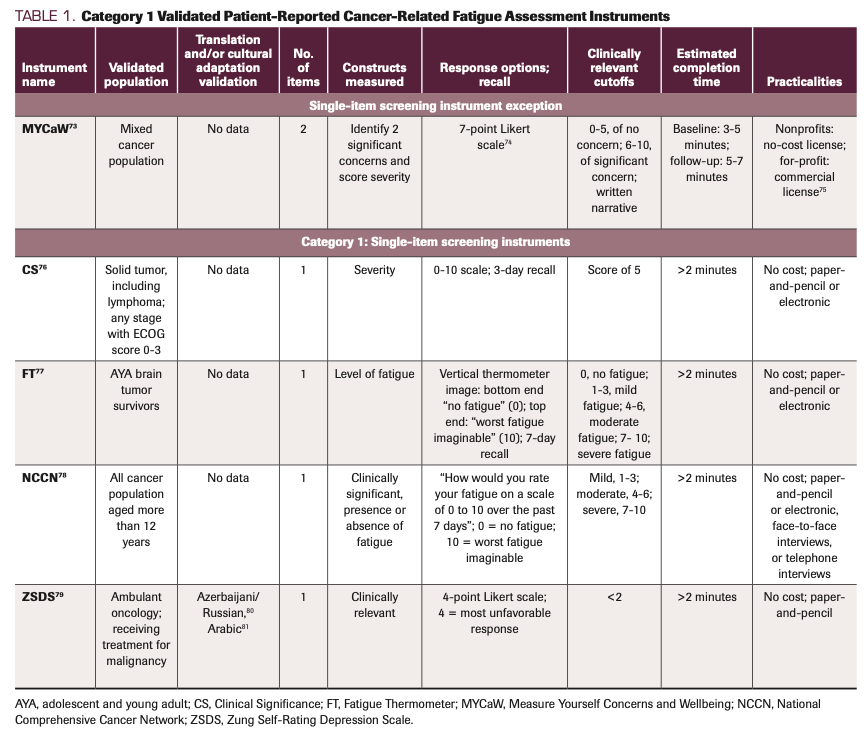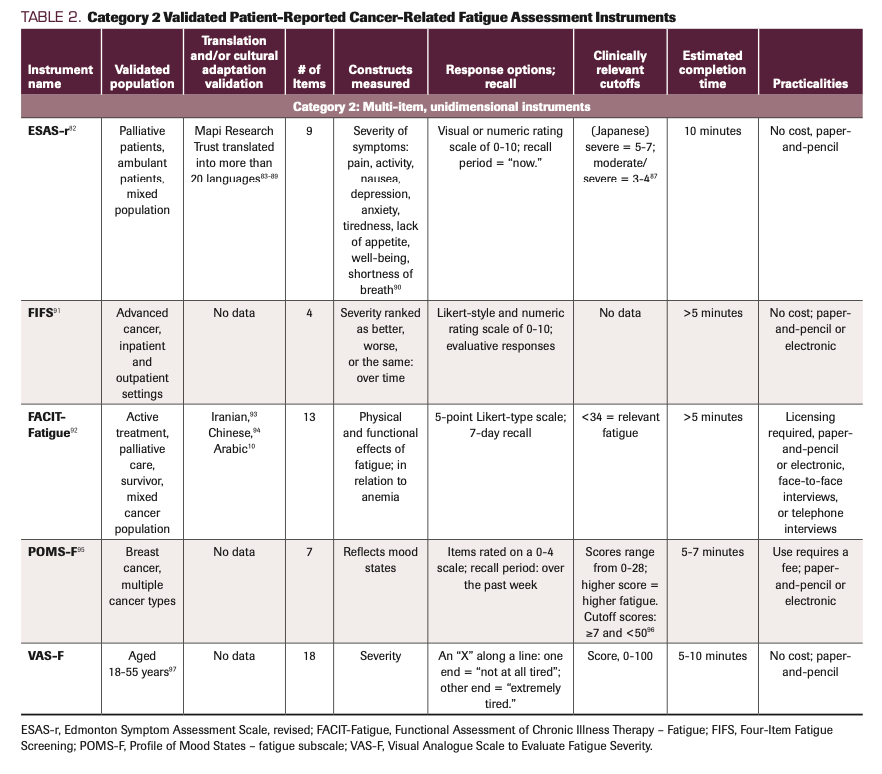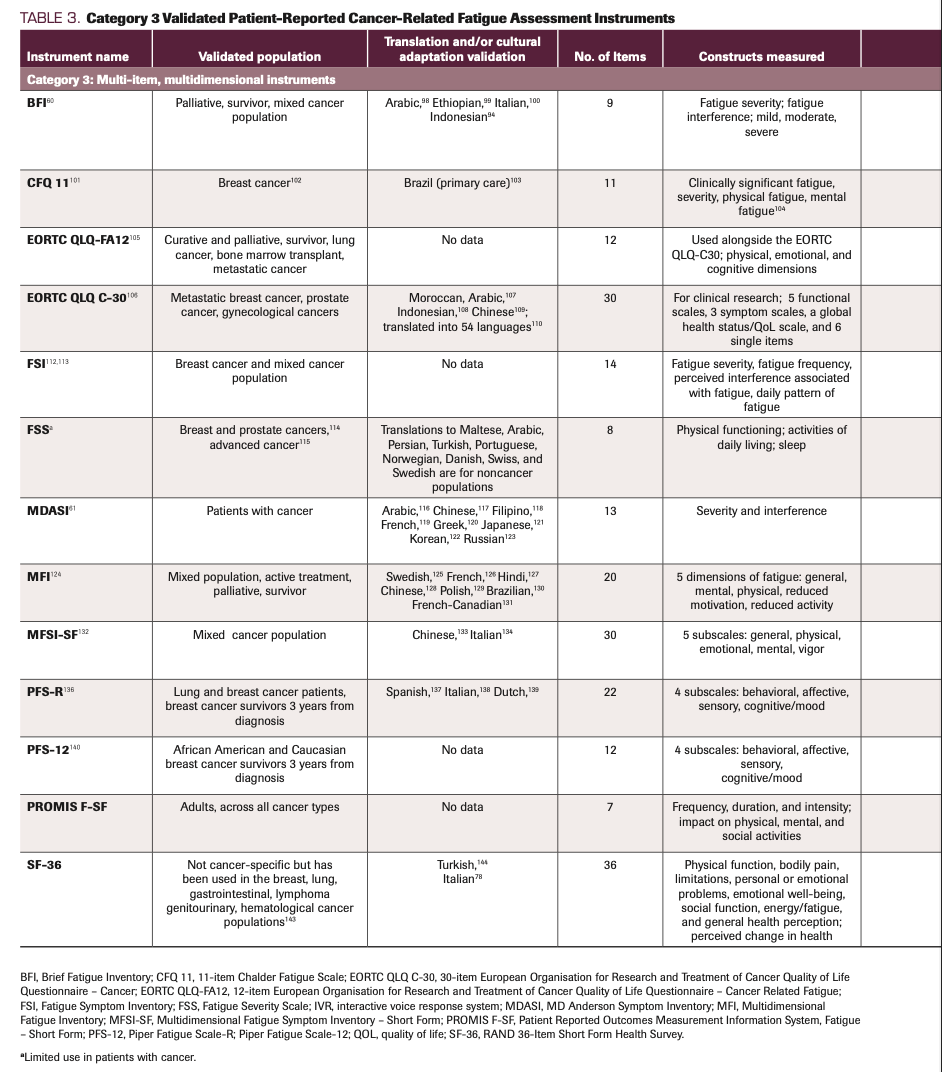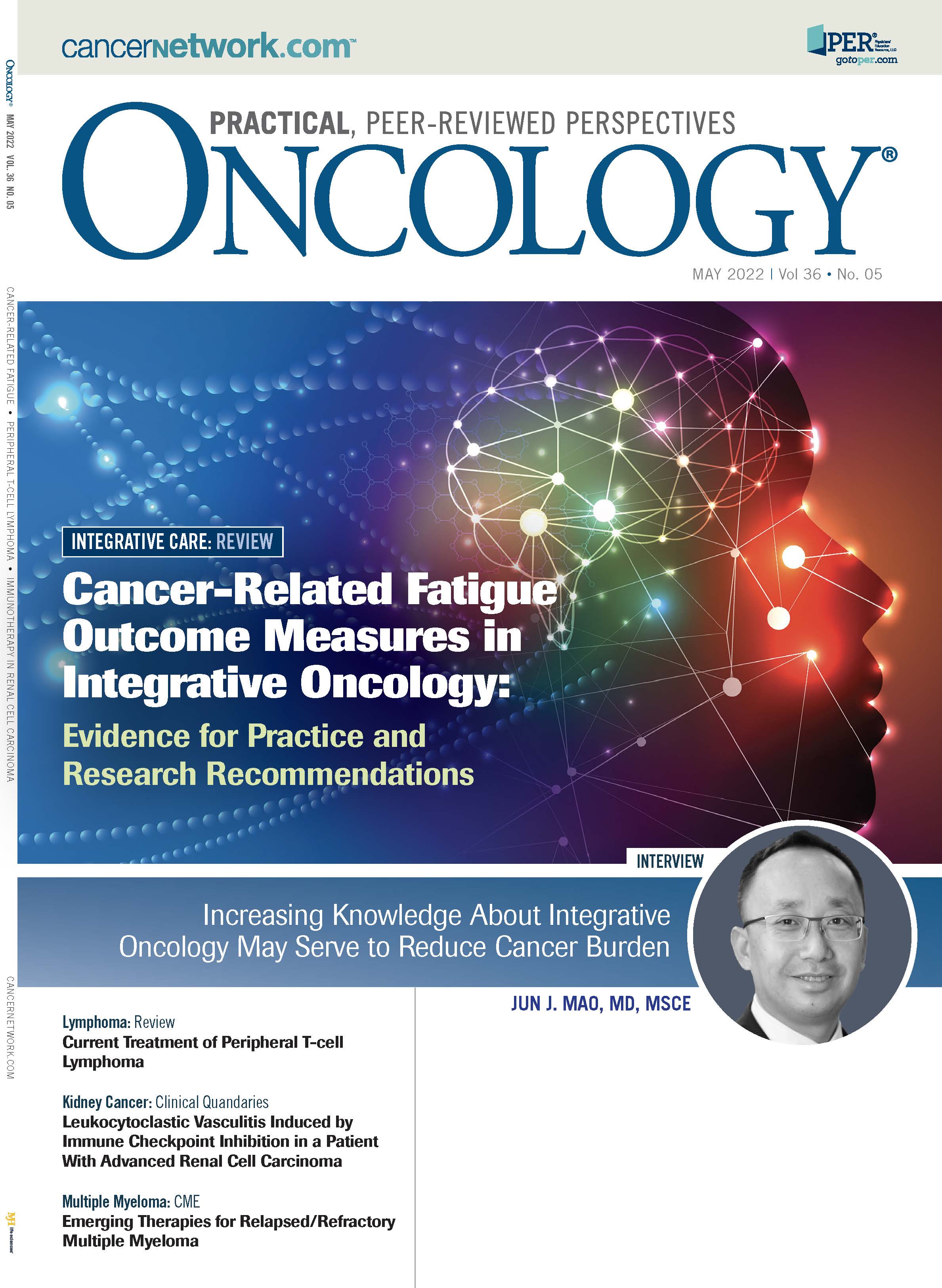Deciding Which Cancer-Related Fatigue Assessment Tool to Use Just Got Much Easier
Lisa Sprod, PhD, MPH, provides perspective on a cancer-related fatigue assessment tools.
Lisa Sprod, PhD, MPH, provides perspective on Cancer-Related Fatigue Outcome Measures in Integrative Oncology: Evidence for Practice and Research Recommendations
TABLE 1. Category 1 Validated Patient-Reported Cancer-Related Fatigue Assessment Instruments

Cancer-related fatigue (CRF) is most often evaluated using patient-reported tools, making it subjective in nature. In addition, CRF is multidimensional and often a comorbid condition occurring with mood disorders, pain, and sleep disturbance, among others. Numerous tools have been developed to assess CRF, yet it remains the most common and persistent symptom and/or adverse effect resulting from cancer and its treatment, often lasting many years. In a large multicenter study (n > 3000), Wang et al found that moderate to severe fatigue is common in cancer survivors during active treatment and beyond.1 Other investigators have found that up to 99% of patients with cancer report CRF; and in up to one-third of survivors, fatigue persisted for as long as 10 years after the end of therapy.2
TABLE 2. Category 2 Validated Patient-Reported Cancer-Related Fatigue Assessment Instruments

Despite the high prevalence of CRF, it is still thought to be underreported and undertreated, perhaps in part due to confusion about how to best assess it. With so many survivors of cancer negatively affected by CRF, investigators have focused their efforts on attempting to determine the most effective ways to reduce its impact. Exercise, psychological interventions, and pharmacological treatments have proven to offer some improvement in CRF. As a coauthor on a meta-analysis conducted to determine which intervention was most effective of the 3 listed above, I examined the wide variety of tools used to assess CRF. As an investigator, I have spent countless hours deciding on the best tool to use in my research. Assessment tools vary in their length; the ideal time in which to use them; the recall period; the constructs evaluated; and their sensitivity, reliability, and validity. All of these considerations may leave investigators and clinicians unsure of the best tool for their particular need.
TABLE 3. Category 3 Validated Patient-Reported Cancer-Related Fatigue Assessment Instruments

The authors of the accompanying article have done a phenomenal job providing information that will aid investigators and clinicians in determining the best tool for their needs.3 Specifically, the article provides information that may clarify the best tool for assessing CRF based on factors such as the reason for assessment of CRF (clinical or research) and patient and clinician burden. This article provides a thorough overview of CRF, including prevalence, potential mechanisms, and common comorbidities. Next, the authors describe the challenges associated with choosing the appropriate tool and considerations one should make. With that backdrop, clinicians and investigators are able to utilize the comprehensive tables provided by the authors that categorize tools based on use for screening (Table 1), unidimensional measures (Table 2), or multidimensional measures (Table 3). Information on populations in which the tools have been validated, whether the tools have been translated and/or culturally adapted and validated, the number of items in each tool, the type of rating scales the tools use, the estimated completion time of the tools, and more is available. This article will be one I keep close at hand when reading articles that include CRF as an outcome, and I will certainly rely on it as a I choose CRF measures in my research. In addition, this article may serve as a model that inspires investigators and clinicians to comprehensively review other outcomes with multiple tools for assessment.
References
- Wang XS, Zhao F, Fisch MJ, et al. Prevalence and characteristics of moderate to severe fatigue: a multicenter study in cancer patients and survivors. Cancer. 2014;120(3):425-432. doi:10.1002/cncr.28434
- Schmidt ME, Hermann S, Arndt V, Steindorf K. Prevalence and severity of long-term physical, emotional, and cognitive fatigue across 15 different cancer entities. Cancer Med. 2020;9(21):8053-8061. doi:10.1002/cam4.3413
- Gentile D, Beeler D, Wang XS, et al. Cancer-related fatigue measures in integrative oncology: evidence for practice and research recommendations. ONCOLOGY (Williston Park). 2022;36(5):276-287.

Late Hepatic Recurrence From Granulosa Cell Tumor: A Case Report
Granulosa cell tumors exhibit late recurrence and rare hepatic metastasis, emphasizing the need for lifelong surveillance in affected patients.
Late Hepatic Recurrence From Granulosa Cell Tumor: A Case Report
Granulosa cell tumors exhibit late recurrence and rare hepatic metastasis, emphasizing the need for lifelong surveillance in affected patients.
2 Commerce Drive
Cranbury, NJ 08512
All rights reserved.